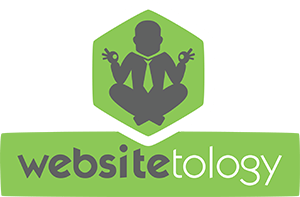Distinction between forums and blogs?
We often learn more from our students than from our studies, and in the last seminar someone asked what the difference between blogs and forums.
I don’t feel that I offered the best answer, since blog posts offer a forum for discussion.
While this is simplistic: a forum is a place where a community can post and discuss things- many to many- mostly posed as short questions. A well moderated forum keeps new users from reposting the same questions and makes sure questions are framed in useful language. “Help, my blog is broken” isn’t a good forum question- “My categories in wordpress aren’t working” is a better question.
A blog is a place where a single user posts ideas- and builds a community- that may eventually add a forum to the site. WordPress allows for multiple authors, with different degrees of access, so this model can be adapted to a forum concept, but generally, blog posts are longer questions, and the tools of moderation are structured differently. The developers of WordPress have built a forum software that integrates closely with WordPress- bbPress, and over time, the functions may begin to overlap. Some blogs leave the base level of ownership as “author” allowing anyone to publish- this turns a blog into a forum.
The reality is, the difference is in the eye of the beholder. The true measurement really comes in the size and activity of the audience. A blog that is read by nobody, with few comments or trackbacks isn’t much of a forum just as a forum with no participants is really just a blog.
The thread that got this idea going is linked to below- where a bunch of academics discuss it at length- in a “forum”- I found the following bit interesting.
SCoPE: Seminars: Distinction between forums and blogs
From Formal courses: Blog protocol, Public/Private, Forums/Blogs (Long Post) by derekc on Fri Feb 16 22:24:00 2007:
1. the blog owner posts without an awareness of audience
2. the blog owner posts with an attempt to identify audience (at this stage, the poster finishes their entries with questions or invites “invisible” readers to comment)
3. the blog owner posts for a clear audience (e.g. the poster refers back to blog commentators or includes links to other blogs or sites by them)
4. a regular group of commentators is set, and dialogues take place via blog comments
5. some of these commentators start making entries (as “guest bloggers”), and each of them goes through stages #1 to #4.
6. a regular group of posters is thread, with a group voice gradually developed.
Either way, the idea of community and community generated content is key to the whole “web 2.0” experience. If your site is built for business- and you aren’t involving your customers- you won’t be in business for long. Either customers will discuss your products and services on your site- or they will do it on someone elses (including their own). Consider yourself informed and go out and let the community discussion begin.


In many ways, its just presentation and a couple minor differences. You could use almost the exact same database structure for a forum and a blog, since the data that is being handled is almost identical.
Examples:
Blog Post = First Post of a Forum Thread
Comments = Replies to First Post of Forum Thread
Users = Users
In fact, Drupal’s built in forum functionality is actually blog presented like a forum. I’ve even played around with some experiments modifying forum software to handle blog posts. The biggest change was changing the look of the first post in a thread to look like a blog post, and making the replies to the first post look like comments.